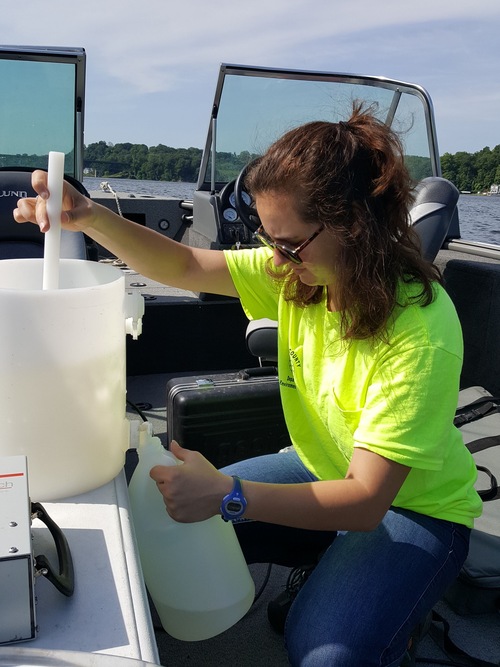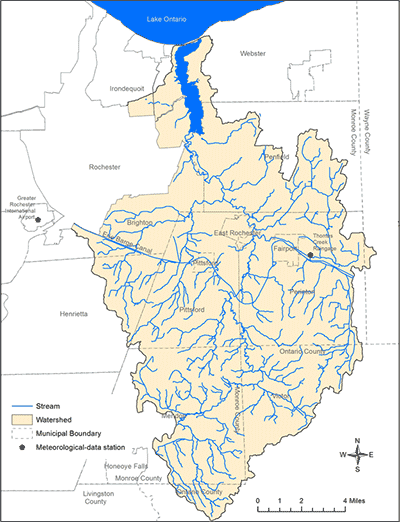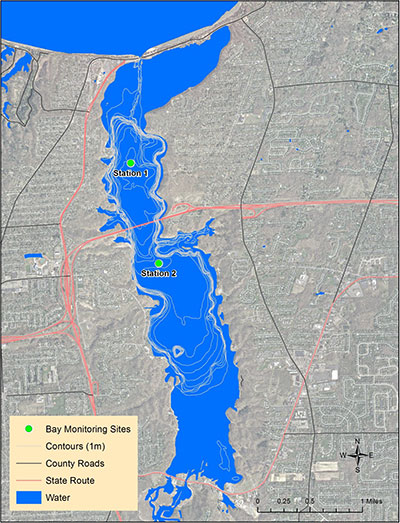Water Quality History
Irondequoit Bay has been in a eutrophic state for the past several decades. This eutrophic state is caused by an enrichment in nutrients like phosphorous and nitrogen. This nutrient dense state of the bay has been subjected to the problems of advanced eutrophication such as algal blooms. When these algal blooms decompose, they deplete the oxygen levels available in the water, making it inhabitable for some aquatic life. However, since 1968, plans were undertaken to improve the water quality of the bay. In 1978 and 1979, the abundance of nutrient loadings from wastewater were diverted from Irondequoit Creek to the Van Lare Wastewater Treatment Facility. This was followed by significant work to reduce sewer overflow discharges into the bay. Subsequent monitoring indicated a significant reduction in the nutrient phosphorus loading from the creek to the bay.
Irondequoit Bay Watershed
Bay Monitoring Program
The Monroe County Department Environmental Services manages the monitoring program. Irondequoit Bay has 31 years of monitoring records dating back to 1984. The frequency of monitoring has varied over this period. Years of high-intensity monitoring were often the result of a large-scale intervention such as the alum treatment or the start of oxygenation. Current monitoring can be thought of as “strategic monitoring” where staff and resources are utilized to continue the decades-long effort to provide the specific data required to determine the health of the bay.

- Irondequoit Bay Monitoring Report 2015 (PDF)
- Irondequoit Bay Monitoring Summary 2016-17 (PDF)
- Irondequoit Bay Nutrient Levels and Trophic State 2018 (PDF)
- Biological Study of Irondequoit Bay
For more information on water quality [email protected]















